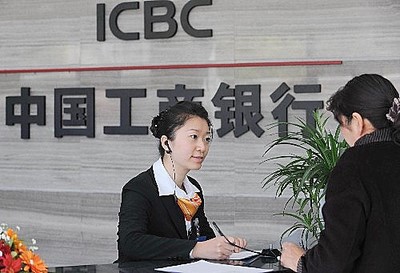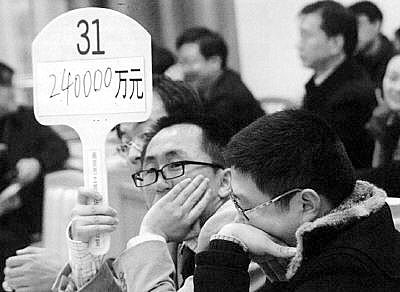
Photo: Company
THE RELATIVELY loose monetary policy that existed in China last year led the way for several banks to increase lending to record levels amid a low interest rate environment.
The upshot of this borrowing frenzy so far is that of 12 listed banks already releasing their 2009 annual reports, over 21 trln yuan was lend out to industries and individuals.
But even more alarming for China’s ever-vigilant economic regulators in the fact that over one-fifth of this total, or 5.3 trln yuan, was classified as mortgage loans.
However, the latest macromeasures targeting speculation in the sector are sure to have a downward pull on overall lending to the property sector this year.
At the same time, interest rates on mortgages are very likely to rise, quite possibly over the short term, as government policy and bank lending strategy work in unison to bring about less exuberant growth in property prices.
The Chinese language piece in SinaFinance cited a industry expert as saying that banks had up until now been relying on income from high-volume mortgage contracts, but going forward they will likely have to survive on fewer deals but with higher lending rates.
“So the banks are very keen to see a net zero effect on their balance sheets from the property controls,” he said, but added that revenue from individual mortgage holders this year would surely decline this year.
But regulators are using nearly everything in their toolbox to cool the white hot property sector in China.
March property prices in China grew at the fastest rate in five years, with the key national property-price index climbing as much as 11.7% during the month compared to a year earlier.
Last week, the Chinese government hiked the down payment for people buying second homes to a minimum of 50% of the property value from 40%, in a bid to curb speculation.
And first-home buyers will have to pay more than 30% of property prices if the property area is above 90 square meters, the State Council statement said.
And earlier this week, the government once again lowered the boom on the boom.
China on Monday told banks they could refuse additional mortgages to buyers who own two or more properties.
Then on Tuesday, China tightened regulations on advance sales of new property developments.
The Ministry of Housing and Urban-Rural Development said developers cannot receive downpayments for unfinished properties without first winning government approval.
Once authorities give developers the green light to presell properties, they must publish prices for each unit in the development within 10 days of obtaining approval, the ministry said.
It added it was keeping a closer eye on the real-estate market after discovering some developers were hoarding properties to illegally drive up prices.
Developers who violate the rules or conduct advance sales in a way to create false impressions that supply is lower than reality will be punished, the statement added.
Golden Eggs

Banks were very loathe to bid farewell to the housing market boom, as housing loans from a dozen listed lenders last year were 5.3 trln yuan.
This made up 24.3% of total bank loans of nearly 22 trln yuan lent out in 2009, making mortgages the goose that lays the golden eggs.
A quick look at some of the lenders releasing 2009 annual reports brings the importance of home loans home.
Other than CITIC Bank and Bank of Beijing, the 12 other listed lenders have already announced their performances last year.
Of the total, 1.66 trln yuan was lent to real estate firms, while 3.62 trln found its way into the hands of homeowners and individual investors buying up new units.
And the three big state-owned (SOE) banks made up over 79% of the total last year.
At the top of the heap was the country's biggest bank, Industrial and Commercial Bank of China (ICBC), with property loans hitting 1.3 trln yuan last year, with 422 bln to real estate firms and 874 bln to individual borrowers.
Rounding out the list of major listed banks with heavy reliance on the housing sector last year were Bank of China (total property loans of 1.27 trln yuan), China Construction Bank (1.22 trln), Bank of Communications (354 bln), Pudong Development Bank (220 bln), Industrial Bank (200 bln).
Some of these banks are even in excess of 20% exposed to the property sector for their total lending.
It will be well worthwhile for investors in both property and banking stocks to keep a close eye on first quarter figures for listed banks, especially on their rates of lending exposure to the real estate sector.
Regulators in China are certainly keeping a close eye on the figures.
See also: China Shares: H-shares, A-shares hit by macro-measures







